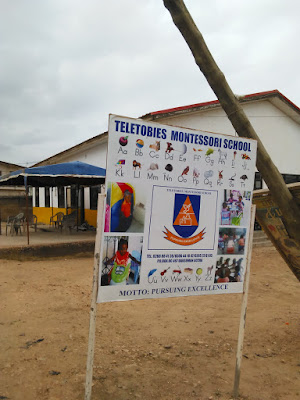Between the British-ish accent and the fact that English is not most Ghanaians' first language, communication proved not as easy as I'd expected. It seems that in everyday conversation, most people talked in Ga, Twi or Ewe, some of the most widely spoken local languages. I speak not a word of any.
But even in English, I had trouble understanding many people, and many people had trouble understanding me, whether at a shop, boarding a tro tro or even in hotels that cater to European and North American tourists.
I had to resort to having Denise, an honorary Ghanaian by virtue of having spent years there doing her dissertation research, in effect translate.
But it's not just accents that made communicating a trick. There's also context:
Please, have you experience using foreign idioms?
I have some errands but I'll be coming.
Where shall I alight to get to your place?
I'll get a drop.
"Ssssssss!"
Boss, do you need units?
Translations:
Excuse me, but do you know what I mean by "idiom"?
I'll be right back after I run some errands.
Where do I get off the tro tro to get to your house?
I'll call a cab.
Sir, would you like to buy some airtime for your cell phone?
Hey, excuse me, excuse me!
I'm sure it works the other way. Just to play devil's advocate, -- who! There I go. That could easily be misconstrued in Ghana. Not to mention things like "hit it out of the park," "hail Mary," "on ice," "call a cab," "missed the bus."
And then there are terms that, not matter how well-intended, are easily mistranslated. I'm sure the Swedish factory where my old Volvo sedan was built thought it made perfect sense to place bi-lingual a sticker on the inside lid of the trunk to explain how to quickly change a tire. Little did they know that the word for "speed" is recognizable to an English speaker but means something else entirely. So the first word of instructions on the otherwise unintelligible half of the explanatory label was: Fart.
And it was clearly meant as an imperative verb.
Signs in particular are troublesome. I hesitated to include these as they may come across as making fun of non-native English speakers. But I offer them as a way of showing the dangers of lifting words out of cultural context. I'm sure many American phrases would be equally hilarious or nonsensical to many Ghanaians, and that's really the point.
If you have any signs or expressions from another English-speaking country that would be absurd, comical or otherwise way out of place out of context, please share in a comment.
 |
 |
| There's some buzz about the Ghana National Association of Teachers. |
No comments:
Post a Comment